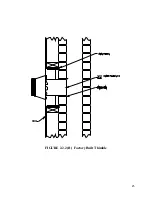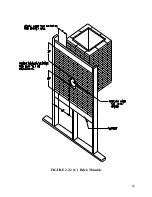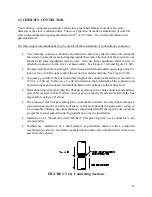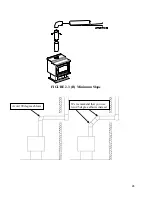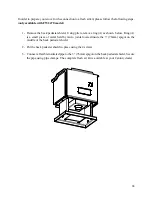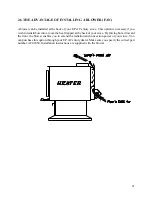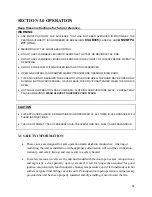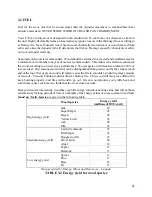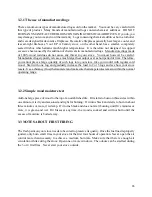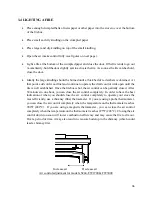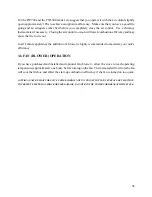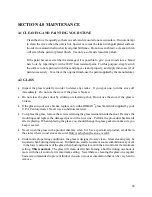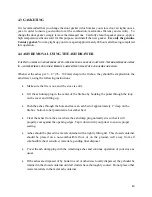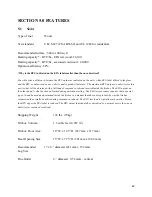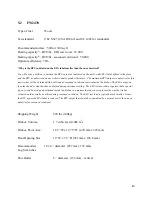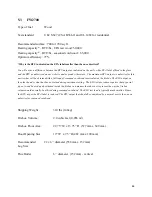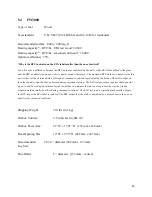
39
SECTION 4.0 MAINTENANCE
4.1 CLEANING AND PAINTING YOUR STOVE
Clean the stove frequently so that soot, ash, and creosote do not accumulate. Do not attempt
to clean the stove when the unit is hot. Special care must be taken with gold plated surfaces
in order to maintain the finish at its original brilliance. Do not use an abrasive cleaner which
will scratch the paint or plated finish. Use only a soft and clean damp cloth.
If the paint becomes scratched or damaged, it is possible to give your wood stove a brand
new look, by repainting it with a 650
o
C heat resistant paint. For this purpose, simply scrub
the surface to be repainted with fine sand paper, clean it properly, and apply thin coats (2) of
paint successively. To retrieve the original finish, use the paint supplied by the manufacturer.
4.2 GLASS
•
Inspect the glass regularly in order to detect any cracks. If you spot one, turn the stove off
immediately. Do not use the stove if the glass is broken.
•
Do not close the glass door by sticking or slamming shot. Do not use the stove if the glass is
broken.
•
If the glass on your stove breaks, replace only with a ROBAX
®
glass 5mm thick supplied by your
E.P.A Century dealer. Never use a substitute material.
•
To replace the glass, remove the screws retaining the glass retainers inside the door. Remove the
mouldings and replace the damaged piece with a new one. Perform the procedure backwards
after replacing. When replacing the glass, you should change the glass gasket to make sure you
keep it sealed.
•
Never wash the glass with a product that may scratch it. Use a specialized product, available in
the stores where wood stoves are sold. Only wash when the stove is cold.
•
Under normal operating conditions, the glass is designed to stay clean. Glass cleaning may be
required when burning damp wood. Furthermore, small creosote or soot accumulation may occur
in the lower end corners of the glass when burning the stove with the air control at the minimum
setting.
This is normal
. The glass will clean itself when burning a hot fire during one hour or
more with the air control at its maximum setting. Nevertheless, cleaning the glass on a regular
basis is recommended to prevent thicker creosote or soot accumulation that can be very hard to
remove.

